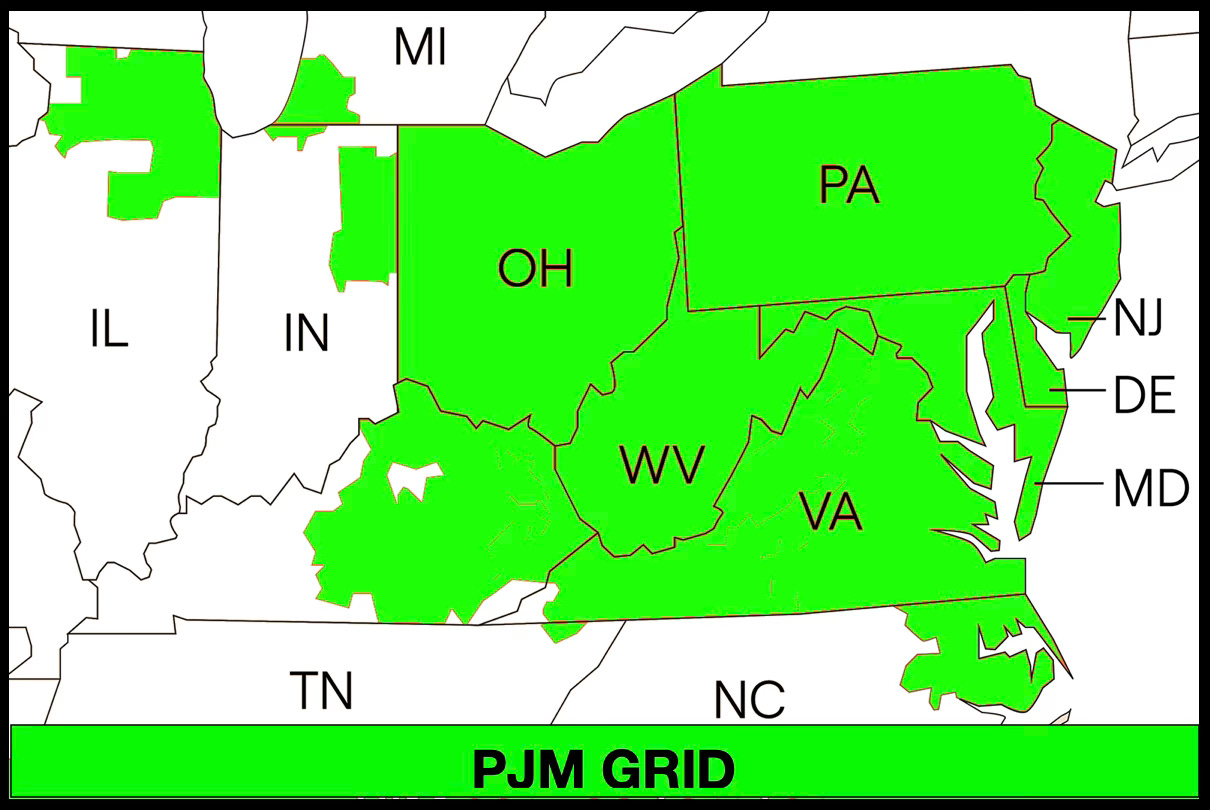PJM's Problems Illustrate Just How Quickly Politicians Can Worsen Any Problem: Even What Were Always Bad Ideas
Doug Sheridan takes a look at PJM’s problems:
Heatmap writes, as the US faces its first significant increase in power demand in decades, the grid itself is not only aging, but also straining against the financial, logistical, and legal barriers to adding new supply. It’s enough to make you wonder—what’s the point of an electricity market, anyway?
That’s the question some stakeholders in the PJM Interconnection, America’s largest electricity market, started asking loudly in public in response to the grid operator’s proposal that new large energy users could become “non-capacity backed load,” i.e., be forced to turn off if ever and whenever PJM deems it necessary.
PJM, which covers 13 states from the Mid-Atlantic to the Midwest, has been the poster child for the struggle to get new generation online as data center development surges. PJM has warned it will have “just enough generation to meet its reliability requirement” in 2026 and 2027, and its independent market monitor says the costs associated with serving that new and forecast demand have already reached the billions, translating to higher retail electricity rates in several PJM states.
Basically no one in the PJM system—transmission owners, power producers, and data center developers—was happy with the details of PJM’s plan to deal with the situation. In public comments on the proposed rule, many brought up a central conflict between utilities’ historic duty to serve and the realities of the modern power market.
Nevermind that electricity markets like PJM are supposed to deal with wholesale electricity sales, not the kind of core questions of who gets served and when, which are left to the states.
On the power producer side, major East Coast supplier Talen Energy wrote, “The NCBL proposal exceeds PJM’s authority by establishing a regime where PJM holds the power to withhold electric service unlawfully from certain categories of large load.”
Exelon added that owners of transmission “have a responsibility to serve all customers—large, small, and in between. We are obligated to provide both retail and wholesale electric service safely and reliably.”
Meanwhile, Microsoft, which has made itself into a leader in AI, argued, “A PJM rule curtailing non-capacity-backed load would not only unlawfully intrude on state authority, but it would also fundamentally undercut the very purpose of PJM’s capacity market.”
It’s just one small piece of a debate that’s been heating up for years. As more market participants, activists, and scholars question whether the markets that govern much of the electric grid are delivering power as cheaply and abundantly as they were promised to. Some have even suggested letting PJM utilities build their own power plants again, effectively reversing the market structure of the past few decades.
Our Take: Leave it to today’s politicians to meddle in markets to such a degree that they effectively break them—only to then complain that markets don’t work as promised.
My Take: Doug succinctly describes the biggest energy problem we face today across the globe. It's always the rotten politicians who have manipulated the grid on behalf of grifters and the cause of advancing their own political objectives and power. Governors such as Josh Shapiro and Wes Moore are always trying to force PJM and other RTOs and ISOs to bend to their will and then blame the latter for the problems they created by forcing solar and wind onto the grid.
What can be done about it? I’ve said it before and Bob Bradley has been preaching it for years. The obvious answer is to move toward a truly free market and get the politicians as far away from it as possible. We can’t go on this way with pretend markets that the pols are free to destroy by forcing solar and wind into the system that must be controlled before they destroy it.
#RTOs #ISOs #Politicians #Grid #Electricity #DougSheridan




Thanks for this one, it drives me crazy the number of talking heads trying to curry pollical favor by jumping on this bandwagon. Virtually zero have a clue what they are talking about.
Agree with Bradley that free markets should decide the outcome.
And, further, screw Microsoft.